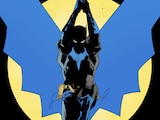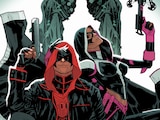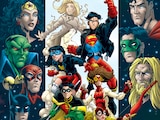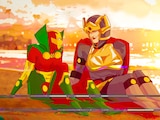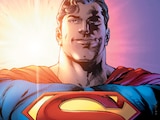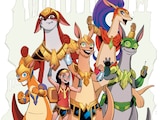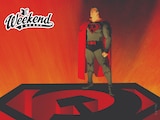We’re now over halfway through “Crisis on Infinite Earths,” and so far, I think we can all agree that it’s been a lot of fun. I can’t remember the last time I smiled as widely as I did when Tom Ellis’ Lucifer crossed paths with John Constantine and asked Mia Smoak what it was she most desired. Chances are it was on Sunday night when we got the return of Robert Wuhl’s Alexander Knox and Burt Ward’s Dick Grayson within moments of each other. Or maybe it was seeing Kevin Conroy as an older, broken Bruce Wayne. My point is that so far, every hour of “Crisis” has been pure joy (minus all of the death and destruction, of course), and it’s pretty clear that, as promised, “Crisis” is going to be the most impactful, important DCTV crossover we’ve seen so far.
But the question I can’t help asking is…should it be?
The fact that it’s based on Marv Wolfman and George Perez’s Crisis on Infinite Earths comic more or less demands some substantial fallout. The whole “Crisis” name has become synonymous with line-wide change for DC’s comics, so you kind of expect it to bring the same to the world of DCTV. And that’s fine. That’s not really what I’m questioning. Rather, I’m asking why that level of change matters so much. Looking at much of the fan response online, it seems like people are excited by the prospect of things like Tyler Hoechlin, Brandon Routh and Tom Welling’s Clark Kents all existing within the same world, and like I said at the start, it is a lot of fun. But does it really improve Supergirl, Superman Returns and Smallville to have them all live within the same multiverse?
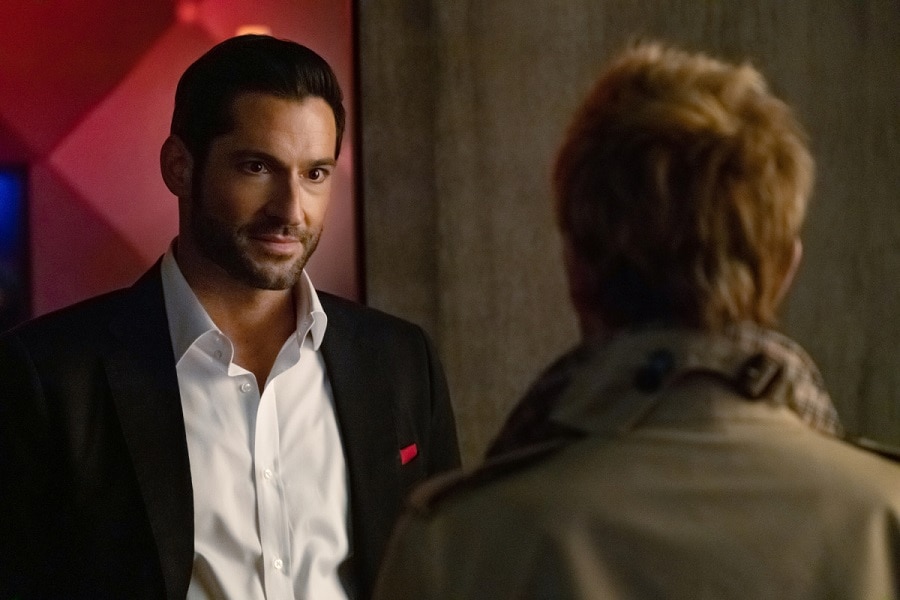
With the dominance of superheroes in entertainment, fans have really come to expect movies and TV shows based on characters from the “Big Two” to exist in their own respective shared universes, to the point that there’s often very vocal backlash when they don’t (think of all the recent drama involving a particular arachnid-loving superhero). I understand where it comes from. Superheroes exist in a shared universe in comics, so we expect them to in live action as well.
But let’s look at that shared universe for a moment. In particular, let’s look at Batman. If you read comics, you likely know that for the past several months, Batman’s been involved in a high-stakes, life-or-death battle with Bane that resulted in him once again being “broken” and having to be slowly nursed back to health by Catwoman. However, at the same time, he was also attempting to save the lives of several young women from Victor and Nora Fries, aiding the Outsiders in their attempts to rescue a young metahuman from the League of Assassins, traveling through time and space to save the universe from Doom and partnering with Superman to fight against the Batman Who Laughs. All of that—which has been taking place in Batman, Detective Comics, Batman and the Outsiders, Justice League and Batman/Superman, respectively—doesn’t even include any of the guest appearances he might have made in any of the other comics set within the DC Universe. Now, I know Batman is one of the World’s Greatest Superheroes, but he’s still just a man and there are still only 24 hours in a day.
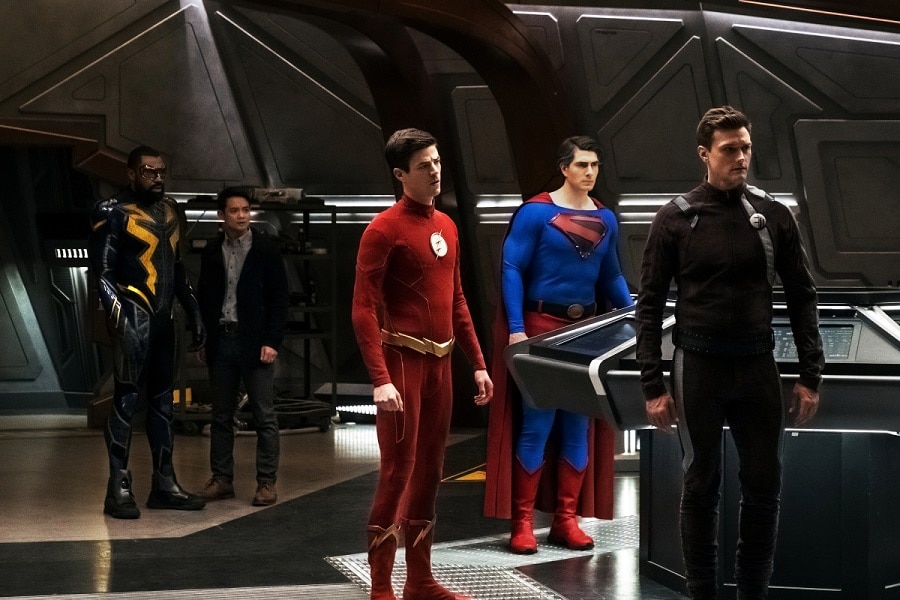
DC’s comics may be set within a shared universe, but it really only gets considered when it makes sense on a storytelling level. I’m talking major events like Year of the Villain, Event Leviathan or Heroes in Crisis. When the creative teams can tell stronger stories by disregarding the fact that Batman or Superman might also be currently trapped within the Hall of Doom or on the other side of the universe, they’re going to disregard them. In other words, that shared universe is pretty darn fluid. Sometimes it’s critically important. Other times, it’s all but ignored.
It seems to me that the people involved with bringing these characters to the screen have been doing much the same thing. Every year, The CW has a crossover event featuring heroes from several of their shows, and they’re always entertaining. But so are the stories they tell for the rest of the year, and often that means ignoring the fact that the other heroes exist. Why didn’t Kara call any of the other heroes for help the previous week when Rama Khan was on the verge of destroying the planet? Why not call Green Arrow and Supergirl to help when Barry went bad and the rest of Team Flash was left to fend off a zombie outbreak? I mean, that would be a smart thing to do, right? The fact that calling other heroes for help is so rarely the solution only goes to show that their shared universe really isn’t the most important thing about them. In fact, there are times when it flat-out gets in the way of the story they want to tell and their response seems to be to…well, ignore it.
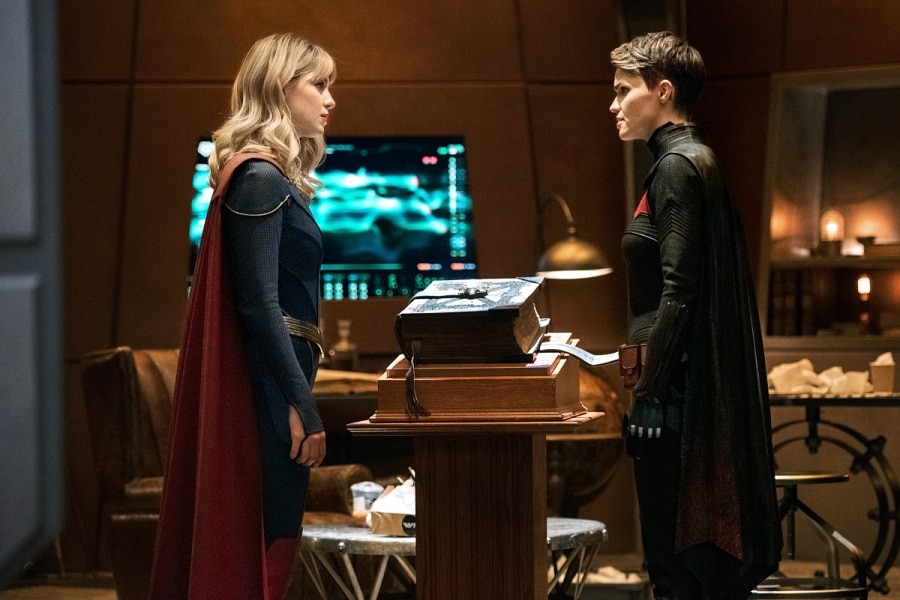
Just to be clear, I’m not saying that the Arrowverse shouldn’t be a shared universe or that it would be better if it weren’t. As I said at the start, it’s lots of fun seeing these characters cross paths. All I’m saying is that the characters don’t need to do that to matter. Stories still “count” when they’re told in isolation. They still matter even if other shows and movies come along that recast the characters and tell new unconnected stories with them.
Like most DC fans, I’m really excited to see “Crisis” brought to life, and with the Arrowverse’s history, it’s an event that feels earned. There’s considerable story and character potential that a crossover like this can unlock. (Black Lightning and the Flash finding common ground over their lost families and missed fathers comes to mind.) But it doesn’t diminish the value of shows and movies that aren’t a part of it.
Worlds may end when “Crisis on Infinite Earths” concludes in January and it’s safe to assume that what does survive will never be the same. But let’s not forget that the heroes of “Crisis” aren’t just fighting for their own Earths—they’re fighting for all of them. In other words, even if it’s not a universe they share, they still realize that it holds quite a lot of potential.
"Crisis on Infinite Earths" concludes Tuesday, January 14th on The CW.
Tim Beedle covers movies, TV and comics for DCComics.com and writes our monthly Superman column, "Super Here For..." Look for him on Twitter at @Tim_Beedle.


